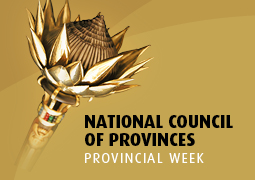
Parliament, Saturday, 21 September 2019 – The Gauteng permanent delegation to the National Council of Provinces (NCOP) has underlined the undesirability of a lack of infrastructure development planning, as it leads to perpetual crisis spending. The delegation visited the province as part of the flagship NCOP Provincial Week programme to assess the state of municipalities in the province.
“The delegation is of the view that if municipalities plan their infrastructure development adequately, they would avoid costly emergency interventions,” said Ambassador Mohammed Dangor, the leader of delegation. The delegation emphasised, however, that planning alone is not enough; effective implementation should also be strengthened.
In Hammanskraal, the delegation appreciated the improved working relationship between all spheres of government in dealing with the water quality issue in the area. It is only through cooperation that challenges can be resolved. The delegation has called for all the spheres of government to urgently consider the option of extending the Rand Water pipeline from Eersterust to Hammanskraal, as suggested by councillors in the area, so that people can get quality water as the rehabilitation of the Appies River system continues.
The delegation has also emphasised the need to adequately spend resources on maintenance. Poor maintenance leads to systematic collapse of the reticulation and waste water system, which is far more expensive to fix.
In Emfuleni, the delegation highlighted similar challenge with the deterioration of the water infrastructure system due to poor maintenance. This has contributed to continuous pollution of the Vaal River system, which is the source of Gauteng’s water supply. “The pollution of the Vaal River system is worrying in the context of the economic importance of Gauteng to the South African economy and the undermining effect of lack of water to this region. But more worrying is the social impact in the region,” said Ambassador Dangor.
Provision of water in tankers, while a necessary short-term measure, is not a long-term solution, especially in the context of the high associated cost. But more broadly, development plans must take into consideration the increased pressure caused by migration into bigger cities like Tshwane. Furthermore, there is urgent need to develop reticulation infrastructure in line with expected economic and social demand in the next 20 years.
Regarding the Babelegi Industrial Park, the delegation has called for both the Gauteng and North West provinces to urgently resolve jurisdiction challenges that have impacted on the park. “The park has potential to create much-needed jobs in the area and contribute positively to improving the lives of the people of both provinces,” Ambassador Dangor emphasised.
The delegation is impressed with the design and workmanship at the Kekana Gardens Clinic, which is a National Health Insurance pilot site. The continuing challenge of skills in primary healthcare facilities across the country is worrying, especially due to the knock-on effect on the provinces like Gauteng, which receives increased referrals from other provinces. A necessary intervention is to ensure that all healthcare facilities across the provinces are adequately staffed, so that the burden is reduced on centres in Gauteng.
The delegation appreciates the work being done by municipalities in the province and has urged the leadership to strengthen areas of weaknesses so that the people receive better quality services.
ISSUED BY THE PARLIAMENTARY COMMUNICATION SERVICES ON BEHALF OF THE GAUTENG PROVINCIAL WHIP
For media enquiries or interviews with the Chairperson, please contact the delegation’s Media Officer:
Name: Malatswa Molepo (Mr)
Parliamentary Communication Services
Tel: 021 403 8438
Cell: 081 512 7920
E-mail: mmolepo@parliament.gov.za

